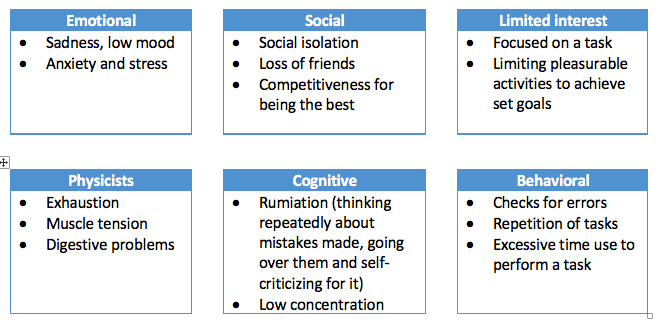
Perfectionism is an aspect that society understands as something good, positive and that must be rewarded, but what happens when it is taken to the extreme?
Perfectionism itself is not positive or negative. This can be divided into two factors: perfectionist concerns and perfectionist efforts. In this sense, depending on the factor that predominates, we can classify perfectionism as adaptive and maladaptive, being the extremes of a continuum.
On the one hand, perfectionist efforts refer to healthier perfectionism. It includes those people who seek to achieve their goals and surpass themselves. In this case, the proposed goals are high but achievable and the criteria are not excessively rigid. That is, they are aware of their own limits and seek excellence, but in the case of not achieving their goals, they maintain motivation and ambition without negatively evaluating themselves or feeling that they have failed.
On the other hand, perfectionist concerns are those that relate to negative and maladaptive perfectionism. It is characterized by great concern and fear of making mistakes. It is a self-imposed perfectionism with a high self-criticism.
Dysfunctional perfectionism

People with dysfunctional perfectionism tend to set very high and demanding quality criteria. They make great efforts to achieve these standards, even if it entails suffering. They are usually characterized by being not totally satisfied with what they do and are very careful in performing tasks, taking into account all the details since they do not tolerate making mistakes. They also have an attentional bias towards the negative. That is, they look at those details that have done wrong or have not met the established standards minimizing the achievements achieved, despite all the effort made.
This perfectionism can be present in one or several aspects of life. Some people will only be perfectionists in one area of their life, such as work, but most tend to be in various aspects such as: work and / or studies, sport and exercise, physical appearance and / or weight, friendships and social relationships, hobbies, appearance of the house, care of children …
The consequences of this maladaptive perfectionism are:

Dysfunctional perfectionism by itself is not a mental disorder, but if it is maintained over time and chronic, an obsessive-compulsive personality disorder or an obsessive-compulsive disorder can develop.
Psychological treatment is aimed at working on those components that are maladaptive. Specifically, emphasis is placed on those thoughts and behaviors that are at the base of perfectionism and encourages self-compassion with mistakes and what is understood as a failure.
Do you find it difficult to enjoy doing nothing?, do you feel guilty for not having done what, according to you, you should have done?, Do you never end up being satisfied with the things you do?, when you get something that you have proposed, are you only able to enjoy it for a short period of time?, Do you criticize yourself if you do not reach the goal you had set?, Do you look too much at your mistakes?
If you’ve answered yes on most questions, you may have fallen into dysfunctional perfectionism. If so and you want to learn how to manage it to feel better, we will be happy to help you.
Laura Maymó Gallurt
Psychologist Col. No B-03427








